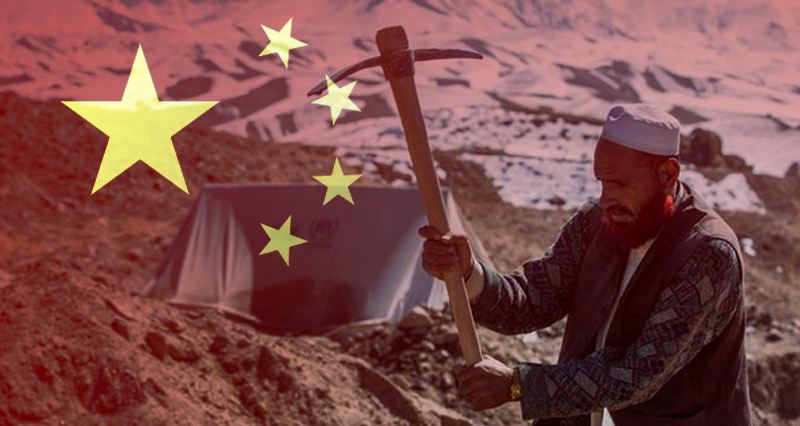Taliban has taken over the driver’s seat in Afghanistan and invites now Chinese companies to invest in the country. Chinese state owned enterprises fear US sanctions as applied against Iran, while the private sector signals will to take a risk.
The Taliban has established control over the great part of the country. Now, a test more difficult that war expects the organization. Afghanistan’s economy depends to 40% on foreign aid, and the steps the Taliban takes will determine its future. Quoting local sources, Bloomberg reports that prices of food and oil have risen approximately 35% since last week, while banks witness a severe shortage of cash. Former head of the Afghan Central Bank, Ajmal Ahmedi has confessed that the national currency will probably loose value in the coming days.
Afghanistan exports goods valuing 1.3 billion US dollars, while imports amount to 5.5. billion. Only more foreign investment can solve the country’s chronic problems. The country’s natural resources are the best instrument for that purpose that the Taliban has at hand. According to a US report dating from 2010, the biggest reserves in lithium worldwide, a resource used widely in electric cars, mobile phones and computers, are located in Bolivia and Afghanistan. Some even call Afghanistan the “Saudi Arabia of lithium”. Additionally, Afghanistan owns great reserves of copper, which is currently sold at the global market to the price of 10 thousand dollars per ton. With global demand for copper rising 43%, the price is also expected to climb extraordinarily. International press reported that Afghanistan can create a revenue of 3 trillion dollars from its natural resources only, including oil reserves.
Taliban provides securities for every occasion
Although Afghanistan’s resources create investors’ appetite, Western companies are not expected to enter the country in the short term due to political reasons. Washington’s step to freeze the 9.5 billion US Dollar Afghan reserves deposited in American banks is considered to be the first step of future limitations.
Taliban, which in the short term will not be recognized by the West, eyes towards the People’s Republic of China. Its leader Mullah Abdul Ghani Baradar has visited China in July and directly invited the neighbor to invest in Afghanistan. The Taliban spokesperson Suheyl Shaheen stated on social media “If they want to invest, we will of course provide their security. China is a friendly country that we welcome in the reconstruction and development of Afghanistan.”
State owned enterprises fear sanctions
Following the statements from Kabul, the Beijing government emphasized that the Taliban deserves to have a chance politically. Public institutions and state owned enterprises meanwhile insist on a “wait-and-see-policy”. Chinese SOEs basic concern are the sanctions with which the US considers targeting Afghanistan.
In an article dealing with the issue, the Chinese newspaper Global Times hinted to the danger of Iran-type sanctions, which push companies out of the global financial system. Experts forecast that in such a scenario, companies would have to stop operations in Afghanistan, while SEOs would act according to the Chinese government’s directives. Speaking to UWI, Dr. Altay Atlı has emphasized that the Chinese government has acted as “a good friend in dire times” in countries such as Iran and Syria, when these were targeted by US sanctions, continuing investments. He argues that a similar scenario is possible in Afghanistan too. Atlı stated that sanctions are not the only problem for Chinese companies, hinting to the existential importance of stability and security.
Chinese public enterprises also openly state that Afghanistan’s problems in infrastructure and governance complicated investments seriously. The Metallurgical Corporation of China (MCC) has started the mining process of the Mes Aynak project in Afghanistan in 2007. In information provided to the Global Times, MCC states that as much as the US occupation, the lack of technical standards and lack of qualified labor force complicated operations.
Taliban visits “China Town”
The Chinese private sector displays a greater flexibility and openness to take risks in Afghanistan compared to SOEs. A “China Town” was established in Kabul in 2019, bearing several small and medium sized companies from China. The Deputy Director of the establishment, Liu Xijing stated to the Chinese press that they do not have any plans to withdraw from Afghanistan. Yu Minghoi, a founding member of the China Town, even stated to have been visited by Taliban members who offered help to overcome any problems and difficulties.

















Leave a Reply